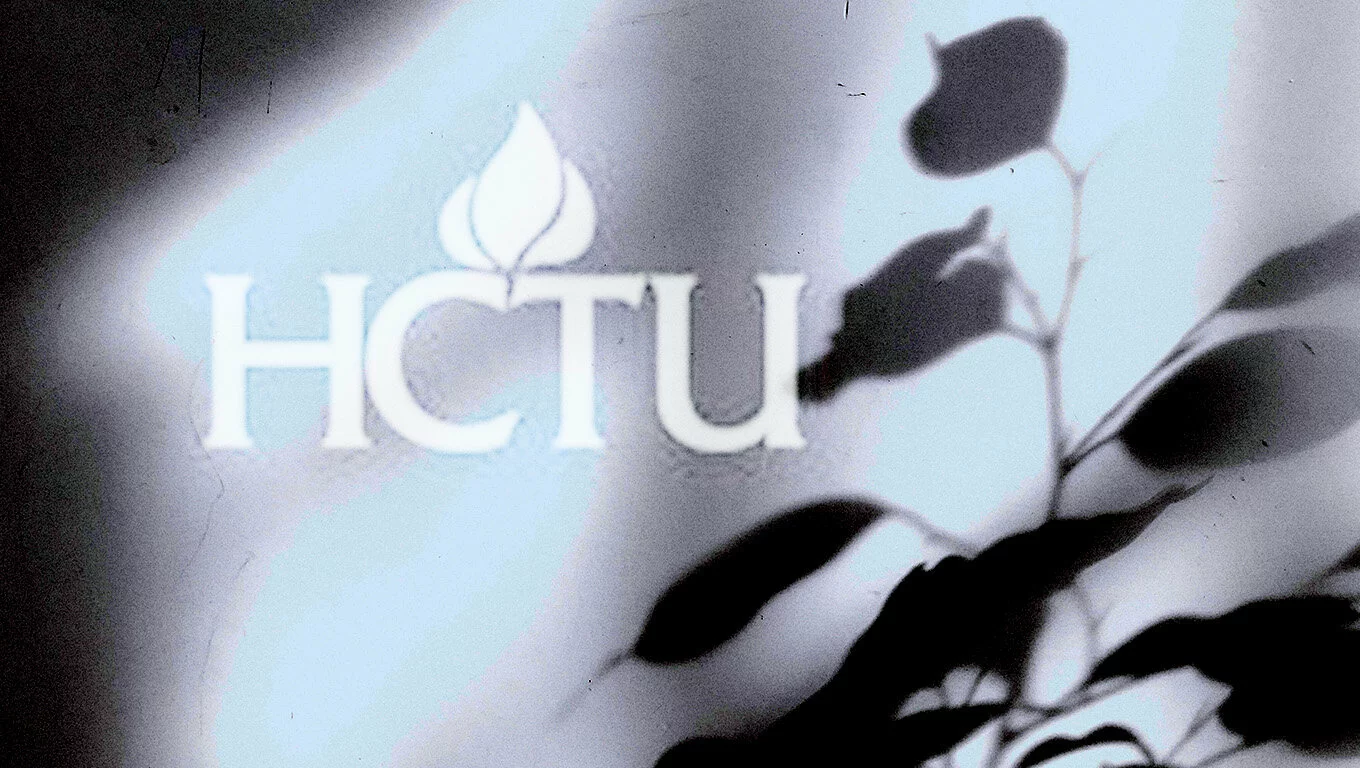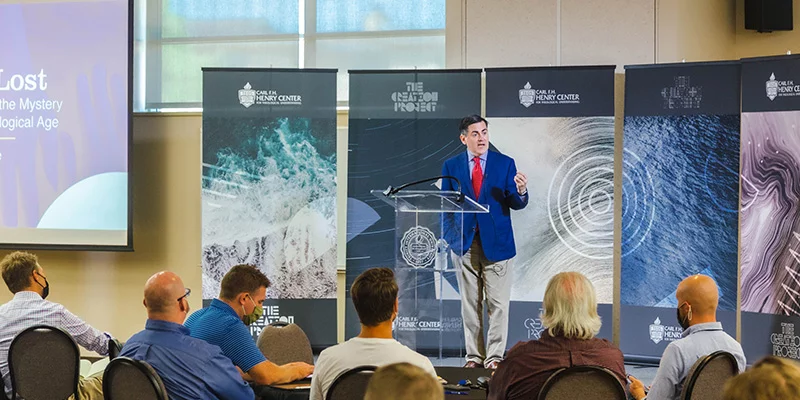
Podcast
The Henry Center podcast features recordings of our public lectures, where scholars and pastors offer careful reflection on a range of biblical, theological, and ecclesial topics.
Subscribe and Listen
Our podcast is available on Spotify and Apple. Listen to our most recent episode below!

Past Episodes
Below are just some of our featured episodes through the years. You can find and listen to all episodes wherever you get your podcasts.

Amy Peeler, Embodied Discipleship: Mary, Jesus, and Engendered Faithfulness
The New Testament does not say much about the mother of Jesus, but what is recorded offers a powerful
example of Christian faithfulness. In some instances, however, she has been lifted up only as an example for women, especially for those of the Catholic or Orthodox expressions of the faith. Attention to her story reveals
both an affirmation of female embodiment in God’s redemptive plan as well as an exemplar for all believers
no matter their sex. She points the way to her Son, embodied male in a uniquely inclusive way, so that all
believers find their holistic identity in him.
Christopher Wright, The Goodness, the Glory, and the
Goal of Creation
Much Christian thinking about creation and environmental issues focuses only on the creation narratives and the concept of stewardship that they generate. We need to look further at the Bible’s insistence that creation itself constitutes a part of the glory of God, such that our actions in and with creation either enhance or diminish God’s glory. And we also need to build an eschatological dimension into our environmental theology and practice. What does the Bible say about the destiny of creation in the purposes of God, and how should that affect our attitudes and actions within it now?
Oliver O’Donovan, Creation, Law, and History
It is usual to expound the idea of creation by referring to “law” as the principle of regularity and predictability that
inheres in the order of the world. But the term “law” is often supposed to be equivocal, meaning one thing as
applied to creation and something else as a norm of free human conduct. In this lecture, O’Donovan argues that in its various theological uses the concept of law is consistent, and always implies the notion of creation. Through it the task of ethics is located in between the givenness of created order and the openness of action, which thereby acquires its significance as “history.”
Eleonore Stump, Suffering and Flourishing
Although we sometimes praise a person who suffers for not sinking under his suffering, we still suppose that the
sufferer is to be ranked more among life’s losers than among life’s winners. The disability rights movement is an exception to this general attitude—it wants others to see that those with disabilities are people to celebrate. The Christian tradition has held an analogous position as regards suffering in general: those who endure serious
suffering are not the pitiable losers of life or even the heroic overcomers of tragedy but rather are those specially loved by God. This lecture looks closely at the relevant Christian doctrines to explain this attitude towards suffering and to distinguish it from the neighboring perverse attitude that sees suffering as an intrinsic good.